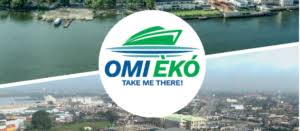The Lagos State Government has confirmed that work will begin in June 2025 on the much-awaited €410 million Omi Eko water transport project, aimed at easing Lagos’ long-standing traffic congestion by tapping into its inland water channels.
The project, which will be supervised by the Lagos State Waterways Authority (LASWA), is planned to last until 2030. It is one of the most ambitious transportation infrastructure projects in the state and is expected to improve the movement of people and goods by providing reliable water-based alternatives to Lagos roads.
According to a weekend statement by the Lagos government, the funding for the Omi Eko project includes €360 million from international development partners like the Agence Française de Développement (AFD), the European Union (EU), and the European Investment Bank (EIB). Lagos State will contribute €40 million, while an additional €10 million will come from private sector investment.
The Omi Eko project will include dredging and upgrading of 15 ferry routes across the state, the introduction of 78 electric-powered ferries, and the construction or rehabilitation of 25 modern ferry terminals. These terminals will come equipped with charging stations, parking areas, passenger waiting lounges, digital ticketing systems, and safety facilities.
The General Manager of LASWA, Oluwadamilola Emmanuel, said the new ferries will be environmentally friendly, using low-emission engines that reduce both water and air pollution in line with Lagos’ climate goals. He also noted that the project will adopt the Cowry card for ticket payments, making it easier and faster for passengers to pay without using cash.
The Omi Eko water transport project is expected to reduce traffic pressure on Lagos roads, especially during peak hours, and create new business and job opportunities in the water transport sector. It also supports Lagos’ broader plan to diversify transportation by making better use of its natural waterways.
In another major development, Lagos has set June 16, 2025, as the new date for full enforcement of the e-call-up system for articulated vehicles and tankers along the Lekki-Epe corridor.
The announcement was made by Deputy Governor, Dr. Kadri Obafemi Hamzat, at a stakeholders’ meeting held on May 29, 2025. The meeting included representatives from the Lagos State Government, transport unions, port operators, and logistics firms operating in the Lekki Free Trade Zone area.
Dr. Hamzat explained that the e-call-up system is designed to control and schedule the movement of heavy-duty trucks, which often cause traffic jams on the busy corridor. The move, he said, is to prevent a repeat of the Apapa gridlock, where container trucks took over roads and caused serious delays and damage to infrastructure.
Commissioner for Transportation, Oluwaseun Osiyemi, said the e-call-up system is not meant to be a revenue drive, but a logistics management tool that will help ease movement and protect the investment Lagos has made in its roads.
He stressed that any articulated vehicles currently blocking the Lekki-Epe road must be removed immediately, warning that enforcement will be strict once the June 16 deadline arrives.
Both the Omi Eko project and the e-call-up system are part of the Lagos State Government’s larger strategy to improve urban mobility, reduce travel time, support climate-friendly transport, and boost economic productivity in one of Africa’s busiest cities.
Residents and transport experts have welcomed the projects, saying that if properly implemented, they could transform the face of Lagos transportation and serve as a model for other Nigerian states.
The state government said it will continue engaging stakeholders and working with private sector players to deliver sustainable transport solutions for all residents, whether by land, water, or rail.
